- You are here:
- Home »
- How To
- » Feeding Your Baby
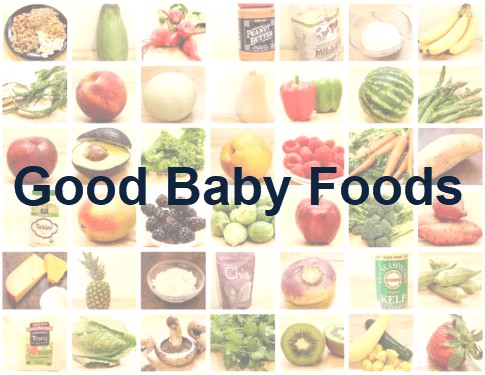
Feeding Your Baby
Feeding Babies & Toddlers
Okay, so first let me start by saying there are as many different opinions on the best way to begin solid foods and feed picky toddlers as there are moms with active Facebook accounts. There is only what is right for you and your particular child.
Secondly, if you are a first time mom or one that feels quite fearful that your child is not eating enough, may I just say that in my experience Toddlers do not starve themselves routinely. Toddlers feel hunger just as you and I do. They may not express it very well or at all but that is where we parents must become very good at reading all sorts of body language, interpretive dance and raging mood swings. By reading your child’s particular cues you will be able to help your child make the right connections between food and well being and this article will I hope assist you to do just that.
When to Start Solids
Opinions will vary on this subject, sometimes quite markedly but there is some basic physiology involved. A baby’s gut is not developed enough to properly handle solid foods until 6 months of age.
Some doctors, even Paediatricians will say that it is ok to start at 4 months but I prefer to err on the side of caution and say 6 months. Babies will start to ‘show interest’ in foods sometimes by about 4 months but your baby reaching for your laden fork is not so much about ‘I’m hungry mommy can I have some of your linguini?’ as it is about them exploring their entire world through all their senses including taste.
It doesn’t matter if they have a toy in their hand, sand or a handful of dog biscuits. Whatever your child can grasp is going to go in their mouth. This is part of priming their immune system, taking in beneficial organisms into the gut from their environment and helping their bodies distinguish what is harmful and needs attacking from what is harmless and can be ignored. People often mistake this for food readiness. It isn’t. The consequences of starting your child on solids too early may only be a few very interesting nappies but in this day and age when everything is in so much of a hurry, my advice is take your time. You are going to have years of meal preparation for this kid. Sit back, relax and enjoy the milk months. They are over far too quickly and food is way more work!
You shouldn’t be introducing solid food till your child can sit properly and independently for a good few minutes at a time. If your little one can’t sit without a Bumbo or a highchair, cool your heels for a bit and wait till they can. You will thank me for this later. Trust me.
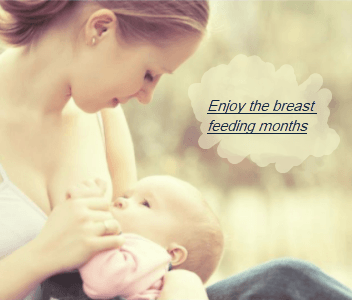
What to Feed your Little One
If your child is 6 months old, can sit independently for short periods of time without getting distressed and is showing readiness and interest in foods then it is time to start introducing foods. It is generally accepted that you should introduce foods singly and offer the same food several times, all the while being vigilant about any reactions. This is generally good advice though there are a few things to note.
Toddlers like variety just like adults and usually if a severe food issue is going to occur it will happen fairly quickly. When first starting solids try one food at a time and see how it goes but once a child has tolerated a new food well for a day and is showing no signs of problems with any other foods you can be a bit more adventurous with it. I will look at food sensitivities in more detail later.
There is a saying ‘food before one is only for fun’. This is because the amount of food your child will actually take in is miniscule in the beginning. Don’t feel that they need 3 square meals a day in order to keep growing and don’t drop their milk intake significantly to make them hungrier. Food before the age of one is about new tastes and new textures. It is not about nutrition AT ALL.
Don’t take your child’s facial expressions, upset or spit up as signs they do not like the food. Parents are apt to panic at this stage but be aware this does not signify endless fights over broccoli with a 3 year old. Your little one is purely reacting to a new sensation, taste and texture in their mouth. Don’t make it mean anything and watch that you don’t react to their reaction and give them a subtle message that Brussel Sprouts are poison. The trick here is to approach all food like it is equal. No big deal. If they eat it, great, if they don’t eat it, also great, your child has experienced a new thing today!
Babies will spit most food out if it is pureed because their tongue is not used to moving thicker consistencies to the back of the throat in order to swallow. Swallowing food is not an automatic ability, they have to learn and practice this skill. I have found the practice of baby led weaning to be infinitely superior here to pureed foods.
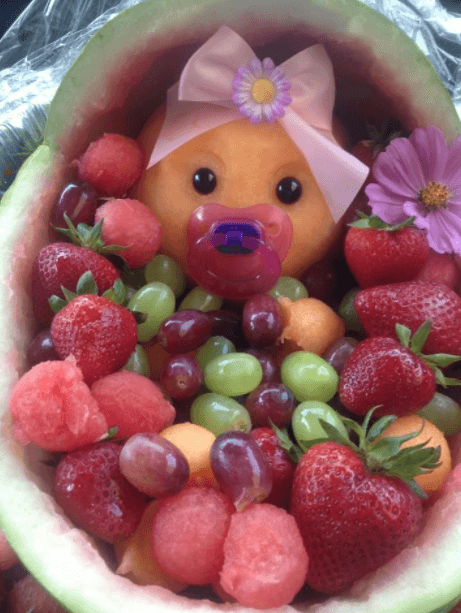
Whilst there are some things that you should be wary of kids having whole like grapes, strawberries, cherry tomatoes which should always be cut up, I find that most children cope really well and take to solids in a much greater variety and with a lot more adventurousness if they are fed from their parent’s plates. If your baby sees you eating something, they are more likely to enjoy it if they are imitating you. For me personally I cannot get enthusiastic about bland, unsalted, pureed anything unless it is applesauce and custard. Babies pick up on it when you’re tucking into a BLT and then try to get them all peppy about their luke-warm squash. It is inauthentic and they can tell.
Besides being an awful lot of unnecessary work, purees will get your child used to only one texture – smooth. When you then try to give them lettuce, raw carrot, beans, things they have to chew, you may have your first real food battles on your hands. This is where the root of a lot of food issues come from so I suggest if you must do purees, make them chunky ones, done with a fork and not a blender and cut them out as soon as you can. If a child gets to 8 months and is still only on purees you could be asking for trouble.
In terms of what foods to start children on? Fruits and vegetables. All of them. As many as you can explore. Get creative and expand your own repertoire and wherever possible, organic. This is how you create adventurous eaters.
Give meat if you are meat eaters but small amounts to start with. Fish in moderation and only small fish if you live in an area where large fish have contamination issues.
How to feed your Child
The answer to this is simple. Anytime, anywhere, anyhow. I suggest if you are at home get a large vinyl matt and place it under the high chair if you are feeding at the table so you can hose it down afterwards. If you have a dog then this tends to take care of any floor mess and your dog will be your child’s BFF. I also suggest you get a tray type plate and or compartment lunch box or bento box you can lay out on a low table with things your child can reach for while they play or that you can take with you. Keep it a bit interesting from day to day but also keep some of the favourites on hand all the time. My son is mad on apples so we have a constant supply but he will also happily munch on a whole raw carrot at age four. Cherry tomatoes, grapes, cheese cubes, strawberries and blueberries all feature prominently but he will also snack on bread, olive oil and dukkah too and we have this for him. I don’t worry too much about meal times because if by the time we are sitting down to eat he has had a whole raw carrot, dip, five or so cherry tomatoes and a banana, well why would I be worried?
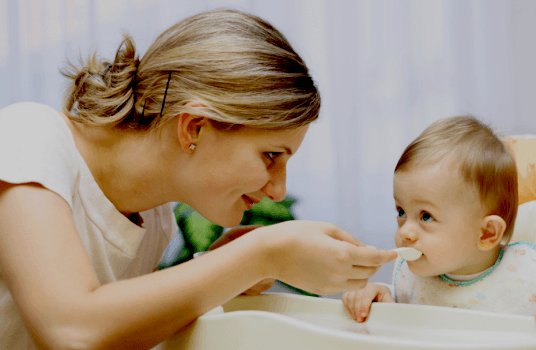
A word on food aversion
People often ask what about what foods to feed picky toddlers. There is no person on the planet that likes every food, I can guarantee. We all have things we don’t like and our children are no exception. As parents we should accept this and move on. That does not mean that we should not introduce new foods or reintroduce old foods in new ways. A close friend of mine grew up with food aversion and remembers all too well being made to eat mouthfuls of things that made her gag. So when she became a mother, she was determined firstly that she would never force her son to eat what he didn’t like and that she would also not pass her own aversions onto him by making assumptions of what he would or would not like. Her son is now adventurous with food because he has been allowed to explore food fully. My friend let him try curries and sushi and raw foods from early on and never said to him, “oh you might not like it.”
We don’t worry about mess. If there is mess, it can be cleaned up and because my son has some autonomy over what and when he eats, he doesn’t stress about being force fed something he hates. If all of a sudden he says I don’t like beetroot, I say that’s ok, you don’t have to eat it but maybe you will like it tomorrow. I generally hate raw onion, but I love raw red onion with basil, olive oil and sea salt on bread. I have learnt just because I don’t like something one way doesn’t mean I won’t love it prepared differently or in a different combination. Kids need to know this too and we teach them by example. I cannot stress enough that the more relaxed you make mealtimes, the better and more varied your child’s eating will be.
Food Allergies and Choking
Food allergies are far more prevalent than they ever were 30 years ago but there remain a few key culprits and they are: Dairy, Nuts, Eggs, Honey, Fish and Shellfish, Soy and Gluten
Reactions to foods tend to be either mild or severe. Mild reactions are perhaps a rash around the mouth, some excess wind and/or gastric distress often followed by either constipation or loose stools. Dairy, soy, gluten and sometimes citrus fruits tend to cause these reactions.
Severe reactions require URGENT MEDICAL ATTENTION. These symptoms include, swelling around the eyes, nose, lips and throat, difficulty breathing and anaphylactic shock. Nuts, Eggs, Honey, Fish and Shellfish typically are the causes here and these should be given with caution and ideally later in your child’s food exploration journey if there are no other signs of allergy.
If you have a history of severe food allergies in your family you should know what to look for and be alert for any signs or symptoms. If there is no history of food allergy but you suspect a food allergy, even a mild one, please seek treatment for your child urgently.
Babies have a very shallow gag reflex and usually will spit something up before it gets so far back as to get lodged in the throat, however it is a good idea to know what to do in the event your child chokes and also to halve or quarter anything large enough to cause a complete obstruction like a grape or cherry tomato. I also personally recommend parents do a first aid course no matter how old their baby is.
Which foods you should avoid in the early years
Once again, opinion varies greatly on what to introduce when but the general consensus is fruits, vegetables, meat are fine to start with. I would save grains such as rice and wheat for a bit later, say about 8 months and probably dairy too unless your baby is on cow’s milk formula and showing no problems.
Wait to introduce the above list of common allergens one at a time and only after your child has shown no problems with common foods. I would leave nuts and shellfish till last but would be fine with trying egg and honey at around 8 months if there were no issues. There is some suggestion that honey should be given only after 1 year due to the possibility of botulism. This is up to the individual parent and really is a matter of the source of the honey and how it is stored.
Tips for Dining out with Young Children
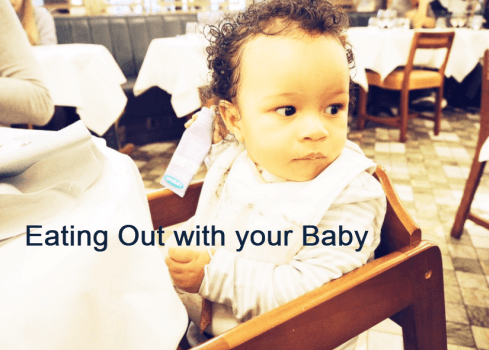
The trick to dining out with young children is to lake them out to eat early and often. Obviously if you have a newborn it is best to spend the first few weeks close to home but if you have friends with kids, mothers group or family, go out with them. Look for cafes and restaurants that allow for a pram, and are kid friendly, not too fine dining.
Make it fun and include your child in the conversation even if they are not yet speaking. Bringing a favourite toy or a few things to play with in a lunch box or back pack they can pack or help to pack gives them autonomy. Also bring baby wipes. Lots and lots of baby wipes.
Conclusion
The trick to avoiding picky eaters, and dealing with fussy toddlers is actually straight-forward. Give variety, let them play and explore and keep it fun and light hearted. If you treat food like it is a great adventure, your children will too and you will avoid a great many of the stresses that usually accompany the transition to solids.

